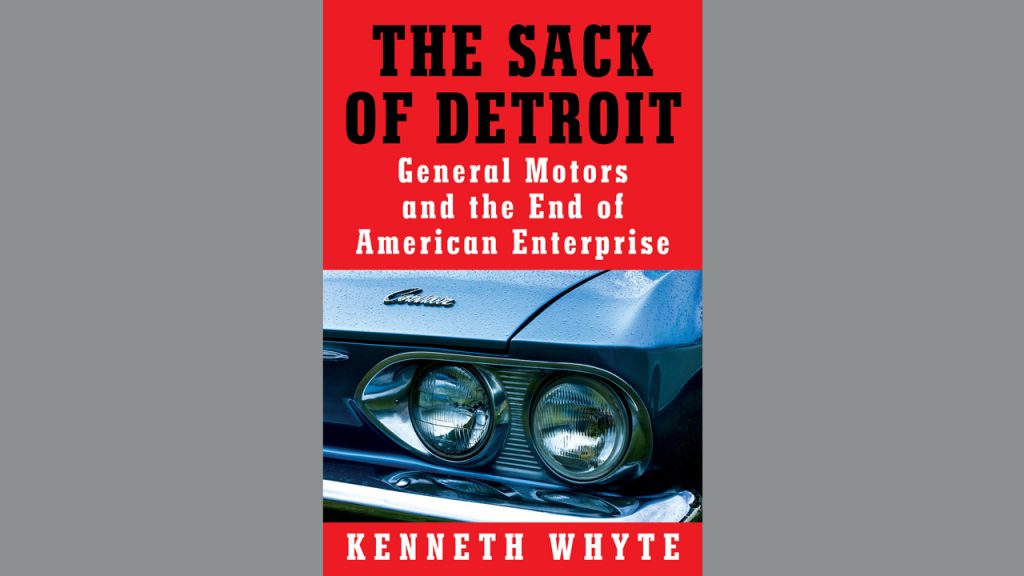New Book “The Sack of Detroit” Explores How 1960s Senate Hearings Led to Fall of GM and Auto Industry
The high-profile Senate hearings on auto safety were a turning point for General Motors and the auto industry, according to historian Kenneth Whyte.

In the 1950s, Detroiters saw massive economic benefits from the cultural ubiquity of the auto industry. Automotive manufacturers were the business titans of their time, and yet, by the mid-1960s, after a series of high-profile Senate hearings about car safety, the tides had turned against the auto industry leading to a loss of money and status.
“They believed that Detroit had the technology, the wherewithal to build a crash-proof car but Detroit didn’t care. So, Detroit was putting unsafe cars on the road and literally murdering people with bad car designs, and that all came up in 1965-66.” –Kenneth Whyte
Author Kenneth Whyte chronicles the downfall of the auto industry, with close attention paid to General Motors.
Listen: Historian Kenneth Whyte on the downfall of the auto industry.
Guest
Kenneth Whyte is a historian and the author of several books. His latest book is “The Sack of Detroit: General Motors and the End of American Enterprise.” Whyte says the automakers were some of the biggest companies of their time and that General Motors was the biggest. “It’s kind of hard to get your head around just how big General Motors was in the mid-1960s. It was sort of like Amazon, Apple, Facebook, Google, but it was more like all of them put together.”
According to Whyte, people like Senators Robert Kennedy and Abraham Ribicoff, and consumer protection advocate Ralph Nader were pushing the auto industry to make safer cars. “They believed that Detroit had the technology, the wherewithal to build a crash-proof car but Detroit didn’t care. So, Detroit was putting unsafe cars on the road and literally murdering people with bad car designs, and that all came up in 1965-66,” Whyte says.
Whyte says the highly publicized 1965-66 hearings about unsafe automobiles resulted in bad publicity for General Motors. “Its profits, more or less, evaporated between 1960 and 1970. It was having to spend more money to sell the same number of cars and that was very expensive for GM,” he says. “Its profitability dried up.”
Web post written by Dan Netter
Trusted, accurate, up-to-date
WDET is here to keep you informed on essential information, news and resources related to COVID-19.
This is a stressful, insecure time for many. So it’s more important than ever for you, our listeners and readers, who are able to donate to keep supporting WDET’s mission. Please make a gift today.
